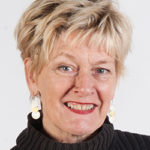Empowering Children to Lead Positive Social Change

23 May 2017 at 6:23 am
Children have great capacity to affect the lives of those around them, writes Dr Andrea Lemon, CEO and founding co-director of Kids Thrive.
“Before Kids as Catalyst I was just an ordinary schoolgirl. Now I’m a legend. I’ve made a change in the community.” Heba, aged 10
When children are given the skills, responsibility and opportunity to think and act creatively and independently, spectacular things can happen – to them, and to their whole community.
I have just returned from the National Rural Health Conference in Cairns, where Kids Thrive was invited to present the evaluated outcomes of our child-led change approach to building community health – working with children to forge positive social change.
Mixing with over 1,000 rural and remote health and wellbeing practitioners I heard calls for a greater focus on preventative measures. I also witnessed their need for programs addressing the social determinants of poor health, and their search for ways to build community resilience, connection and wellbeing.
Kids Thrive is a community cultural development organisation empowering children to lead positive social change, empowering them with knowledge, skills and a road map to forge community partnerships and design projects to address issues they see affecting their local communities.
So what do we mean by “child-led change”?
In a small town in regional Victoria, a group of school kids, aged 9 to 11, wanted to make their community a fairer place for people living with disabilities. They forged a partnership with local organisation, Righteous Pups, and helped them to train an assistance dog, “Johnny” for a local returned army veteran.
“Jan” had received significant injuries in action and now depends on a wheelchair. The children learnt from her the challenges she faces everyday, and helped her learn to work with Johnny.
The children developed a deeper understanding of living with physical disability, but just as importantly, developed a profound relationship with an extraordinary woman. They also raised $1,000 to support Righteous Pups’s work in the community.
Within six months Jan’s life had changed significantly. She had greater independence and mobility, and a new sense of self. She also had eight new friends, all under the age of 12. The children’s care, understanding and ability to relate to her directly – not to her disability – had a profound impact on Jan, as she emerged from the project with greater freedom, feeling the world was a kinder place.
Kids Thrive takes a socio-ecological approach to our work with vulnerable kids and communities, acknowledging the circles of positive support – family, community and society – that must exist around children to help them thrive. But we also know children have great capacity to affect the lives of those around them.
Child-led change supports children to:
- take a lead in identifying community strengths, and find ways to increase those strengths through their own actions;
- identify community problems and find solutions and actions they can take – with or without the support of adults; and
- take life-transforming ideas and skills back to their homes and communities, leading their adults by example into new ways of being in the world.
Our programs engage children up to the age of 12.
Children aged 8 to 12 have been identified as an emerging high risk group, with some children as young as 8 now involved in violent crime.
Yet, as the Lancet commission on adolescent health and well-being observes – these “middle years” have been neglected globally, with a dearth of research, programs or government support. Yet if young people develop mental-health problems, or anti-social behaviours later in life, they most likely originate at this time.
The Jack Brockhoff Child Health and Wellbeing Research Program in the School of Population Health, University of Melbourne recently completed an evaluation of the Kids Thrive child-led change strategy, and found: “It works at individual, interpersonal, community and societal levels to promote individual and community resilience, and to build social connectedness and social capital.”
They identified the Kids as Catalyst philanthropy and social action program as having considerable potential for broad social impacts, with teachers noting 95 per cent of child participants demonstrating greater resilience including improved confidence, teamwork, social awareness, leadership and community engagement, and children self-identifying increases of up to 400 per cent in their trusted social networks.
Kids Thrive is now in its seventh year and we continue to be amazed by the incredible insights children have, their passion for fairness, the responsibility they embrace, and the social challenges they can address when given the time, trust and tools.
It takes a village to raise a child but through the child we can also raise the village.
About the author: Dr Andrea Lemon (PhD) is co-founder and CEO of Kids Thrive. She is also a leading Australian playwright, theatre director and community cultural development artist, ethnographer, curator and author. She is the recipient of numerous awards including a Centenary Federation Medal for her contributions to society, and an Australia Council Senior Artist Fellowship. She completed her doctoral thesis at the University of Melbourne examining issues of community and belonging in the context of nomadic Australian circus communities.








